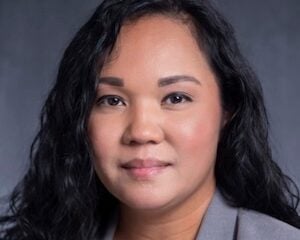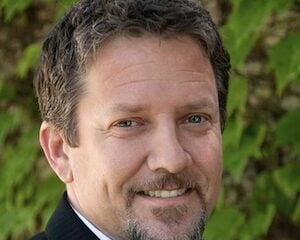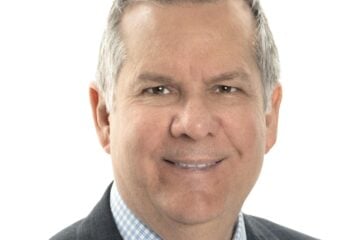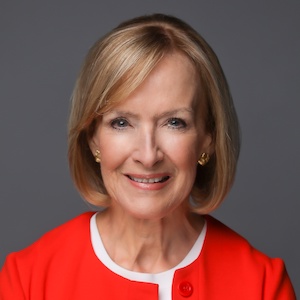How Albina Cabrera’s bilingual content at KEXP is bringing listeners closer together

KEXP
Cabrera
This interview originally appeared in the author’s newsletter, OIGO, and is republished here with permission.
As the Latin Partnerships and Editorial Manager at KEXP, Argentine-born Albina Cabrera has dedicated her career to amplifying diverse voices in the independent music scene. Her work has been marked by a passion for making culture and music accessible, bridging gaps between communities, and fostering a more equitable future through the universal language of music.
This OIGO, you’ll get to know the voice behind El Sonido and one of public media’s brightest stars.
With over a decade of experience, Cabrera transitioned from working in public media in her home country, including at Télam, the national news agency, to becoming a pivotal figure at the iconic Seattle music station. In this interview, Cabrera shares her path to KEXP, from being a fan to a full-time content producer and leader.
In our conversation, she also delves into the challenges of representation in public media, her efforts to introduce Latin music to new audiences, and the importance of building community locally and globally. Her story is one of resilience and of creating spaces where diverse voices are heard and celebrated. Enjoy.
A lot of people that I talk to have said “I was raised around X station or Y station,” but you have a completely different path as to how you got to KEXP.
I was born on the border between Argentina and Chile. And I grew up with radio and with independent artists, because my closest friends eventually became very good musicians in tango, jazz and rock in Argentina. I was involved as a PR agent and an artist manager, and then I became a radio host in public media and college radio.
I moved to Buenos Aires when I turned 21 and started working when I graduated as a voiceover, radio and TV host. I joined Télam, which is like our NPR in Argentina. Around this period, KEXP launched the YouTube channel. That’s where the Live on KEXP sessions started to become viral and a special thing for many people across Latin America. We wanted to listen to new bands, to discover new music.
As I started to get in touch with KEXP through YouTube, I found Cheryl Waters. She became my kind of radio star — a super powerful woman talking in front of the camera, not following the trends, not following anything related to the traditional TV or video thing. That was important to me. The music, the values — everything resonated with me.
When I found out about El Sonido and DJ Chilly, I was like, “Oh my God, they have this radio show in the middle of the Pacific Northwest where they can play alternative music from my community, the music that was part of my personal soundtrack and personal songbook.” I’m a person that loves to learn about society, about history, about politics through music. I think that artists are the real autores (authors) of our cancioneros (songbooks). That was a refugio (refuge) to me. So, of course, I became a fan of KEXP.
I met Chilly in 2016 at a music conference in Buenos Aires. He was, like, zero español, me zero English, and we were trying to communicate. We exchanged emails, and I reached out weekly for nine months with no answer. I was sending albums all the time, and I was recommending music, becoming a fan of the show. And once he replied, he said, “I’m organizing a group of different collaborators from different cities across Latin America. Would you like to send me some music from Argentina?” And I was like, “Yes, of course.”
Then I became familiar with KEXP as a radio station and more than a YouTube channel. KEXP is a radio station that started in 1972, and it became a key element in Latin American culture, and the U.S. Latin community, because we believe in the power of music. And because we were saved by music.
I joined KEXP as a volunteer with different projects such as International Clash Day, which [is] programming dedicated to Joe Strummer and the music of The Clash, but specifically around the ideas that The Clash were sharing at that time: to fight for your right, for your freedom. Those messages in the late ’70s across Latin America were super special. We were surrounded by dictaduras militares (military dictatorships), and the youth at that time couldn’t listen to anyone. Those albums were forbidden.
When I was a volunteer for KEXP, I was working in the public media in Argentina, and si encontrábamos una posición similar a la nuestra en otro país (if we found a position similar to ours in another country), we could go for a month and do our practice. That was the plan, pero (but) that year the right-wing administration arrived in Argentina and fired hundreds of journalists, specifically in public media because some administrations have the idea that public media doesn’t need to exist. I lost my job, and I had a ticket to Seattle. I was like, “What should I do?” Should I stay or should I go, as The Clash said. I decided to give it a try.
The one month became a year, basically, and a new door to a new world and a new era for me and the community at KEXP. We started working a lot around El Sonido, and we started this conversation about our demographics, our audiences. KEXP is really important, es una señal de la comunidad local (it’s a signal of the local community), but it’s also a big part of different local communities around Latin America. KEXP began thinking about how can we provide regular content about Latin music and culture; curating more artists for our Live on KEXP sessions; and thinking about people feeling welcomed. I joined KEXP as a full-time Latin American content producer in 2020. Currently, I’m Latin Partnerships and Editorial Manager at KEXP and host of El Sonido.
You have to navigate representation but also introduce content to an audience that may not be familiar. How do you approach that in your role at KEXP?
I come here from the place of making the culture, information and music accessible to people because, when you build around accessibility, we’re creating un mundo futuro más equitativo (a more equitable future), or at least it’s what we are trying to do.
KEXP is a platform where I can introduce music and artists, and specifically new messages, new perspectives. How I approach content is always like, “Latinoamérica is not one thing. We are not just one month in a year.” So I’ve tried to mix different corners of Latin America in terms of music. I found that there was a gap between what the idea of Latin America is and what Latin America is doing right now. El Sonido brings this perspective of modern alternative Latin music. The U.S. also has been witnessing this revolution of Latin music since the early 2000s. It’s not new that Latin music is conquistando al mundo (conquering the world). And I think that is revolutionary.
The good thing is that our listeners love discovering music. If you know KEXP — no matter when you found it, no matter how long you’ve been listening to KEXP — you know that you’re going to listen to new music, and those artists also are going to tell you the stories of their cultures, the stories of their lives. That is something you cannot find in mainstream radio. I’m not saying that it’s mejor o peor (better or worse). It’s just different.
I’m really interested in bringing the best of Latin America. And when I say the best, yes, you need a good song, but you need to tell me something. I still believe in the power of playing the song and building a memory with someone. To me, radio is mágico (magical) because we are part of your life. You’re listening to the radio, building memories with others, and we’re in the background with you, whether you’re with family or feeling alone. You’re never alone with the radio. Places like KEXP are where you can find that acompañamiento (companionship), empatía (empathy), but at the same time new music and someone who is speaking that song for you. I’m trying to show you that there is always more to discover, to enjoy.
What are you most proud of in your time at KEXP?
The position that I have is my dream job. I couldn’t imagine that this could happen to me. We’ve been trying to have opportunities in media, to have opportunities in the music industry, to have opportunities to build significado y cultura (meaning and culture) since forever. Having the opportunity to build something with others and to join a team where everyone has the same goal is amazing. I’m very proud of being the first Latin American content producer and then becoming a person that can connect, that can build bridges. That feeling of being in this type of organization, having a voice — a voice that impacts others — is something I’m very proud of.
In terms of projects, Live on KEXP from Argentina was one of my biggest tesoros porque (treasures because) when you are an immigrant, the idea of coming back is always there. It’s a responsibility to bring something back to your community. It’s something that I was dreaming to do, and we did it. KEXP believed in this project, and we went to Buenos Aires in 2022 with 12 sessions, doing a remote broadcast in three different stages in the biggest cultural center in South America, Centro Cultural Kirchner, in a partnership with the Ministerio de Cultura (Ministry of Culture) and with public media because Canal Siete (Channel 7), the public television in Argentina, and the public radio station, Radio Nacional, broadcast the sessions across the country. It was the fusion of my two worlds, my two homes, South America and the Pacific Northwest. I’m so proud that I had the chance to bring my new family, which is KEXP, my co-workers, to see my country through my eyes.
KEXP right now is working to tell not only more Latin stories, but also creating bilingual content that is available for you to revisit y compartir (and share). We’re about to go to Mexico for the third time to record 12 Live on KEXP sessions, and it’s going to be the first time that we’re doing our festival there, El Sonido Live. Mexico represents everything to me, personally, and for KEXP. ¿Qué es la ciudad que escucha más música en plataformas digitales del mundo? (Which is the city that listens to the most music on digital platforms in the world?) Mexico is our top country in the breakdown of views in terms of audience on our YouTube channel, and second in the breakdown of countries streaming us. So that says a lot about the love that we have in Mexico.
There are also a lot of things that I will say I’m proud of: being the first Latina hosting, the first hosting en español in front of the camera, the first producer of the podcast en español. These first things in the beginning made me feel like “Oh my God, now what should I do?” Today, I feel that I opened the door a little bit for the new generation, and they are going to do it better than us. But being able to open a new door, me alimenta el corazón mucho (it feeds my heart a lot).
For you in this role, what has been the biggest challenge?
We all as Latinos in public media have this challenge of representation, but also the educational aspect that we have to learn how to do with the least emotional impact on our personal lives. We need to build bridges within our community and internally in our organizations and, at the same time, with external partners, with different communities. We are starting the conversations that can have resultados no imaginados (unimagined results). Yet we cannot do this alone. We need a community of our colleagues in different parts of the U.S. and the world, talking about public media.
When I found the community, when I’m in that conversation. I realize this is a collective effort. This is something that we are dealing with as a community, and we need to be all on the same page and support each other to make this journey easier for all of us. Sometimes being the only Latina in the room — beyond KEXP, but in general as a professional — is something I can see that is changing, but it’s something that was a challenge for me to understand how to deal with. We have to build tools that nobody teaches us basically, to understand and to internalize all these conversations.
How are ways you navigated?
When I started having conversations with other colegas (colleagues), I started to understand that it wasn’t personal; that is basically the role each of us are playing. Representation, building community, bringing new perspectives, and at the same time educating others is part of what we do. That balance was very hard for me to understand because it was overwhelming in the beginning. When you’re having those conversations, you are learning that “‘Hey, you are not alone on this.” Es como una conversación (It’s like a conversation). I’m still learning from people like you, from community leaders in public media in the Latino community who are teaching me how this journey has been for the past generations, because this is not something that we are starting right now at all, entonces (so) to me, compartir esa sabiduría (sharing that wisdom), entender (understanding), nunca olvidar de dónde venimos (never forgetting where we come from), y siempre la comunicación como derecho humano (and, always, communicating as a human right), la igualdad de derechos como derecho humano (equal rights as a human right). This is something all of us as a community, whether we’re creating in arts, in music, in public media, in different disciplinas artísticas y profesionales (artistic and professional disciplines), should see.
When you have your two cultures in you, that allows you to have better conversations because you are part of both culturas (cultures). In my case, I arrived in this country in my 30s. It took me a while, but after six years, when you start to feel that “I have two homes, and the homes are the ones that I’m building inside me, and everyone is coming with me” — when you find that sense of community, you can do better work. All of us play a role here. We are going to hit obstacles. We need to push boundaries. That’s what I’m trying to do, and I’m grateful that I can do this in a place where I can be myself.








